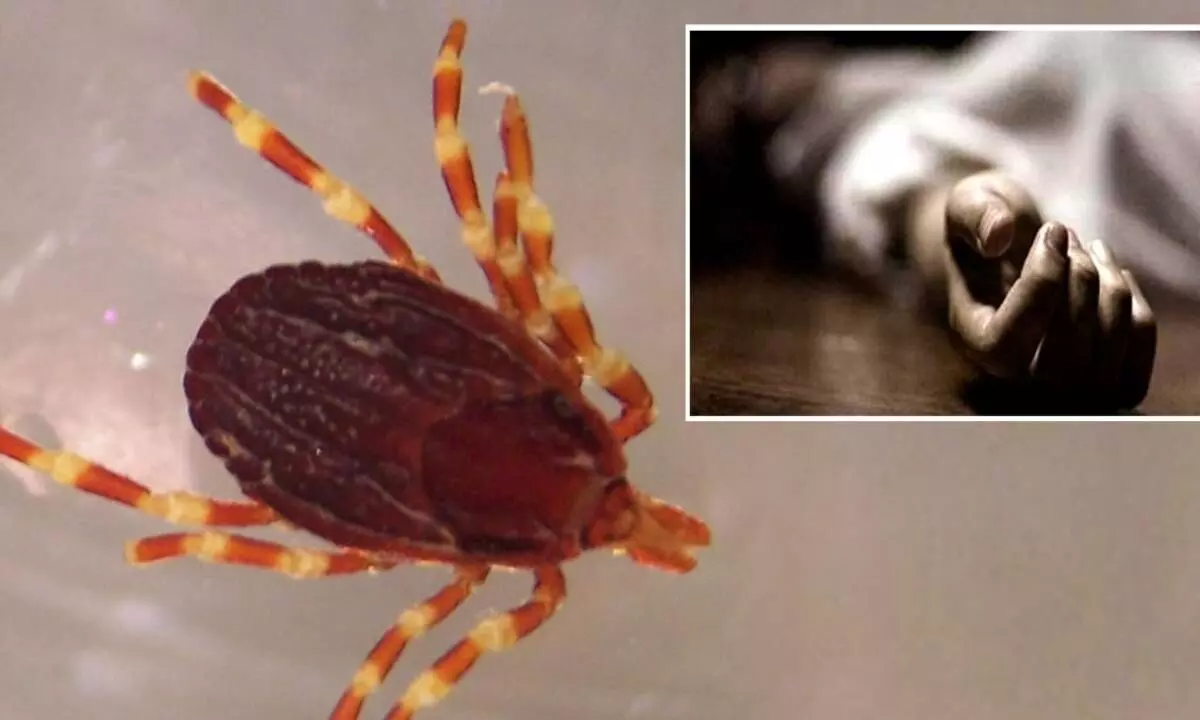- 08-Nov-23
The Congo virus, officially known as Crimean-Congo hemorrhagic fever (CCHF), is a highly infectious tick-borne viral disease. It belongs to the Nairovirus genus of the Bunyaviridae family. CCHF can cause severe illness in humans, characterized by symptoms such as high fever, muscle pain, headache, and, in some cases, hemorrhagic manifestations. The virus is transmitted primarily through the bite of infected ticks, particularly of the Hyalomma genus. It can also be transmitted from person to person through contact with the blood or bodily fluids of an infected individual. CCHF is a zoonotic disease, with livestock serving as potential hosts for the virus-carrying ticks. The virus is of significant concern due to its potential for outbreaks and the risk of severe illness and even death in affected individuals.
Congo Virus Symptoms:
The symptoms of the Congo virus, also known as Crimean-Congo hemorrhagic fever (CCHF), can vary in severity. Common symptoms include:
- Fever: High fever is often one of the initial signs of CCHF.
- Muscle Pain: Individuals with CCHF may experience muscle aches and pain.
- Headache: Severe headaches are a common symptom.
- Fatigue: Profound weakness and fatigue can occur.
- Nausea and Vomiting: There can be vomiting and nausea.
- Diarrhea: Some individuals develop diarrhea.
- Abdominal Pain: Abdominal pain and discomfort can be a symptom.
- Petechiae and Ecchymoses: These are skin manifestations of bleeding, with petechiae being small red or purple spots and ecchymoses being larger bruise-like areas.
- Nosebleeds and Gum Bleeding: Bleeding from the nose and gums can occur.
- Jaundice: Yellowing of the skin and eyes (jaundice) may develop.
- Liver and Kidney Dysfunction: CCHF can lead to liver and kidney impairment.
- Bleeding Disorders: In severe cases, there may be bleeding disorders, including gastrointestinal bleeding, hematuria (blood in urine), and bloody stools.
It's important to note that while these are common symptoms, not everyone with CCHF will experience all of them, and the severity can vary from person to person. In severe cases, CCHF can progress rapidly, leading to organ failure and potentially death. Early diagnosis and medical intervention are crucial for managing the disease and improving the chances of recovery. If you suspect you have been exposed to the Congo virus and are experiencing these symptoms, seek immediate medical attention.
Crimean-Congo Hemorrhagic Fever Virus:
In Pakistan, the deaths caused by the Congo virus (Crimean-Congo hemorrhagic fever or CCHF) can be attributed to several factors:
- Delayed Diagnosis and Treatment: One of the primary causes of deaths related to the Congo virus in Pakistan is delayed diagnosis and treatment. Recognizing the symptoms of CCHF can be challenging, and when individuals do not seek medical attention promptly, the disease can progress to a severe stage, increasing the risk of death.
- Lack of Awareness: A lack of awareness about the virus and its transmission can contribute to deaths. People who are not informed about the risks of handling infected livestock or ticks may not take proper precautions to prevent infection.
- Healthcare Infrastructure: The quality and accessibility of healthcare facilities and services can also impact the outcome. In some areas of Pakistan, access to medical care may be limited, and the availability of necessary medical resources, such as specialized treatments, can affect the prognosis of CCHF patients.
- Co-infections and Complications: Patients with CCHF may experience secondary infections or complications that can worsen their condition and increase the likelihood of death. Timely and appropriate medical care is crucial to address these issues.
- Variability of the Virus: Different strains of the CCHF virus can vary in terms of virulence and mortality rates. Some strains may be more lethal than others.
- Individual Health Status: The overall health and immune status of the individual play a significant role in their ability to fight off the virus. People with underlying health conditions or compromised immune systems may be at a higher risk of severe illness and death.
- Medical Response: The effectiveness and timeliness of medical response, including supportive care, antiviral medications, and appropriate medical interventions, can greatly influence the outcome for CCHF patients.
Preventing CCHF-related deaths in Pakistan involves raising public awareness, improving healthcare infrastructure and access, early detection and diagnosis, and providing timely and appropriate medical care to affected individuals. Additionally, measures to reduce tick exposure and improve personal protection for those at risk, such as healthcare workers and individuals handling livestock, are essential in preventing the spread of the virus and reducing fatalities.
Integrated Medical Care Hospital (IMC Hospital):
The multi-specialty IMC Hospital was established as a joint venture with DHA Lahore with the intention of revolutionizing healthcare and introducing the concept of completely integrated treatment and services. By combining methods and practices for patient management and putting people before illness, IMC overcomes the inherent difficulties of inpatient care. IMC provides a digital platform that integrates many healthcare service components to transform the way healthcare services are provided. Visit the Integrated Medical Care Hospital (IMC Hospital) and schedule a consultation.

 Map
Map










